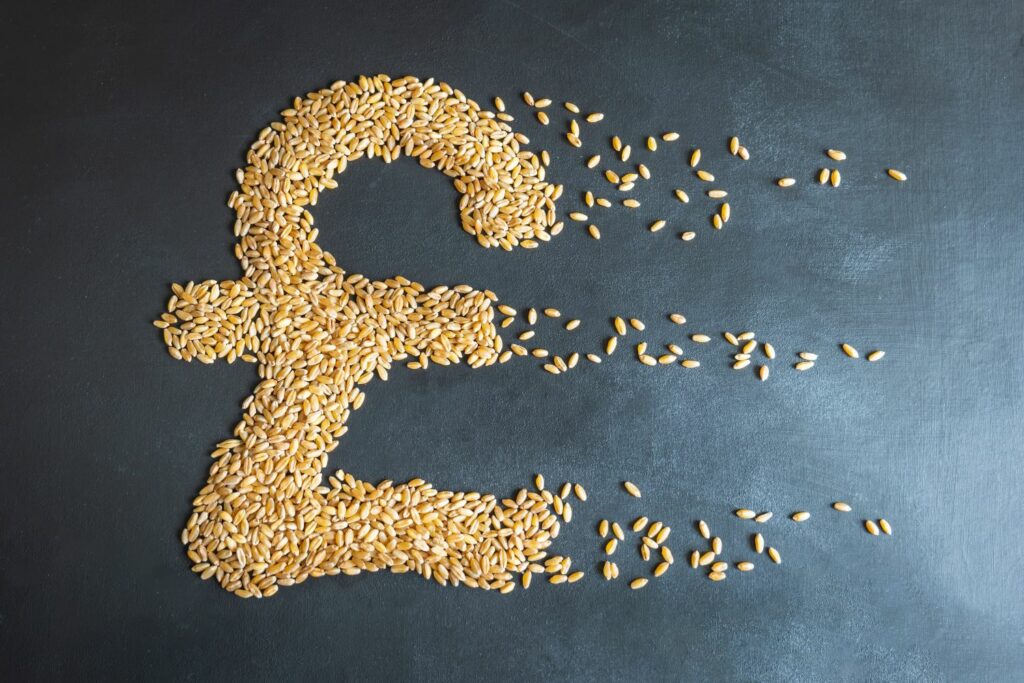Mini-budget tax cuts bring relief to the agricultural sector
4th October 2022
In an effort to tackle the energy crisis and rising inflation, the Government has announced a series of tax cuts in its new Growth Plan that are expected to ease pressures in the farming industry.
During his mini-budget announcement on Friday 23rd September, the Chancellor of the Exchequer, Kwasi Kwarteng, revealed his new Growth Plan in response to the cost-of-living crisis affecting households and businesses across the UK. Alongside other economic measures, the plan outlined the biggest package of tax cuts in half a century, which was welcomed by agricultural organisations.
The Chancellor’s key announcements included the basic rate of income tax falling from 20% to 19% in April 2023, which the Government estimates will give 31 million people on average £170 more to take home per year. The scrapping of the new 45% rate of income tax for high earners was also announced, however, this was reversed on 3rd October.
The Growth Plan also included stamp duty cuts, and reversal of the 1.25% increase in National Insurance from November. The Chancellor remarked: “[…] Reforms I’ve announced today – the biggest package in generations – send a clear signal that growth is our priority.”
With an ambitious 2.5% growth rate in sight, the Government cancelled its plans to increase Corporation Tax from 19% to 25% next year, which means farms trading as limited companies with taxable profits of over £50,000 won’t have to pay more tax.
Investment decisions easier for farmers
Planning investment in farm machinery and plant will also be easier following the Government’s decision to permanently leave the Annual Investment Allowance (AIA) at £1 million, rather than reducing it to £200,000 from 31st March. As a result, farming businesses will be able to deduct 100% of qualifying plant and machinery costs in the first year.
Commenting on the Chancellor’s announcement regarding the AIA, NFU president Minette Batters said: “British food and farming is worth more than £100 billion to the national economy and provides jobs for four million people. Investing in this sector to increase productivity and growth is in everyone’s interests.
“That is why the announcement that the annual investment allowance will remain permanently at £1 million will be welcome news to many farmers, enabling them to plan and make investment decisions at the earliest opportunity.
“We now need to see this extended to cover buildings and structures to encourage greater investment in farm infrastructure, and more detail is needed on other measures outlined in the budget, such as the impact of the new investment zones and planning relaxations on rural areas.”
Jeremy Moody, secretary and adviser at the Central Association of Agricultural Valuers (CAAV), also welcomed the announcement: “CAAV has talked to the Treasury about the need for greater stability in the AIA, especially given the uncertainties of today’s supply chains.
“Farmers should be able to make a timely investment for good reasons, not just to get a tax relief, but the difficulty has been knowing when to invest and whether the that the allowance would be available. A farmer can now decide to invest in robotic milking machines, for example, and not be at risk should they not be delivered until next April,” Mr Moody pointed out.
Sean McCann, chartered financial planner at NFU Mutual, added that investors will appreciate the removal of the recent 1.25% increase in Dividend Tax next April.
Agricultural review underway
Mr McCann went on to highlight the Government’s plans to conduct a review of agricultural productivity, looking at how regulation, investment, and innovation impact farmers and land managers throughout England.
“Farmers will be hoping that review culminates in support from the government at a time of spiralling input costs,” he said.
The NFU has also welcomed news of the upcoming agricultural review, with president Minette Batters stating the organisation is ready to collaborate.
“In order for these frameworks to succeed, they must be developed with farmers and we look forward to working with ministers to help ensure farm businesses are not only supported through the current economic challenges, but are able to make progressive decisions to boost growth and farming’s contribution to the nation,” Ms Batters stressed.
Jeremy Moody from the CAAV was also pleased to learn of the Government picking the agricultural sector out as important, alongside digital connectivity and planning.
“I see this as essential after the last 30 years of falling behind competitor nations. We need, to ensure a profitable agricultural sector, by implementing the changes worked on by the CAAV and the Agricultural Productivity Task Force. I hope we can help the farming economy to be much more productive,” he concluded.
For full details on the Government’s tax cut package, visit: GOV.UK | Chancellor announces new Growth Plan with biggest package of tax cuts in generations

